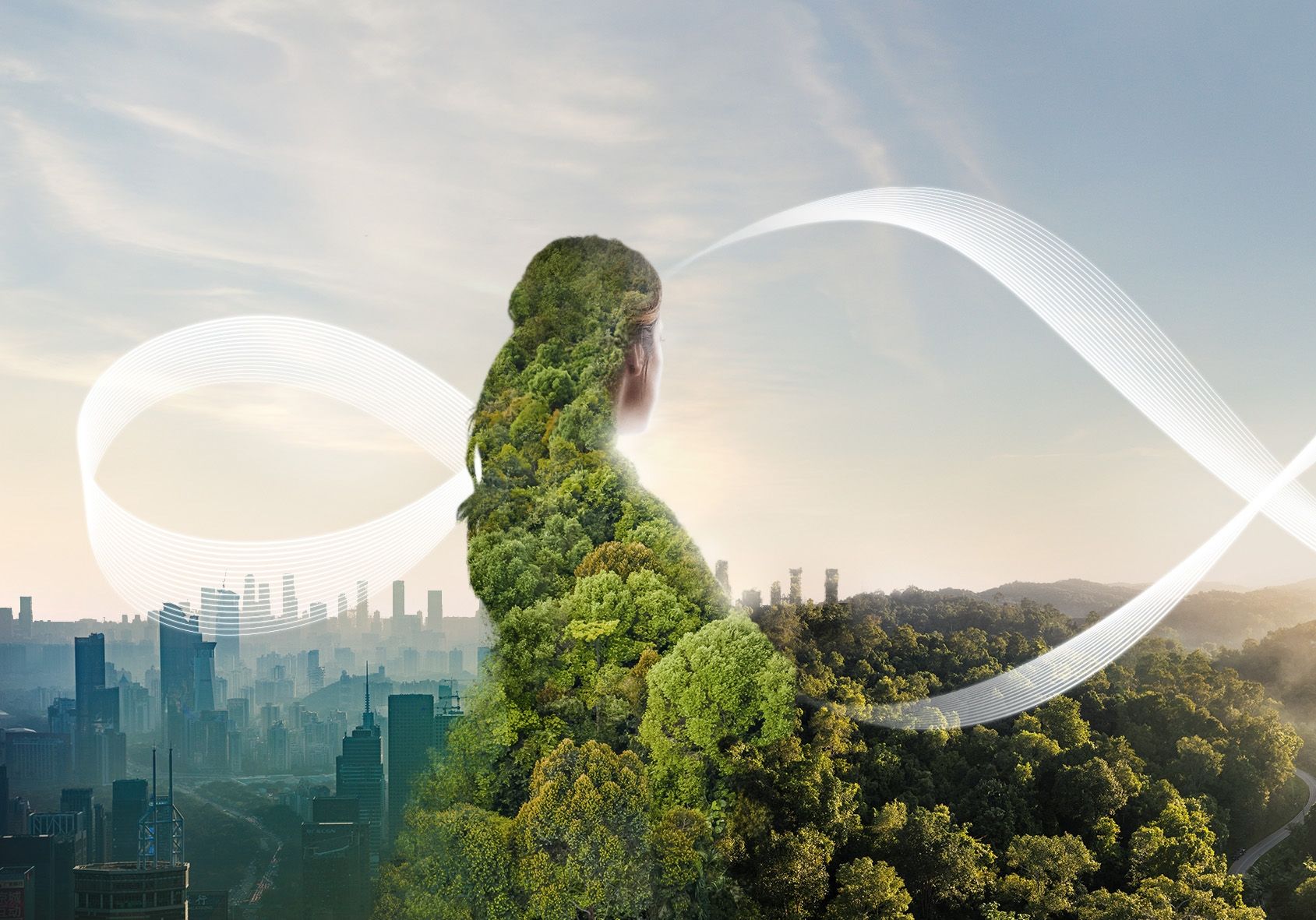10 RULES
- 1. Do not elevate digital technology to an end in itself.
- 2. Do not wrongfully attribute humanity to machines.
- 3. Create space for downtime and analogue encounters.
- 4. Honor social and democratic skills.
- 5. Do not destroy nature and life for technological progress.
- 6. Do not treat people as mere data objects.
- 7. Do not deprive yourself and others of their true human potentials.
- 8. Care for truth and do not deny the limits of technology.
- 9. Do not undermine the freedom of others by technical means.
- 10. Prevent the concentration of power and ensure participation.
Convinced that
-
the recognition of the dignity and value of the human person, their creative and ethical potential and their ability to shape the future, is the basis of the peaceful and democratic coexistence of free subjects;
-
the lack of recognition of these values and potentials favors a blind belief in progress and a deterministic worldview that promotes an attitude of fatalism and resignation that endangers both the future of our planet and the civilized coexistence of people;
-
we all carry the responsibility to live a mindful and good life and to make use of our abilities to openly communicate this through speech, freedom of conscience and belief;
-
modern technology lends us many suitable means to do such in a wise and fair way;
we have formulated the following 10 Rules for the digital world. They should remind all of us, individuals, as well as organizations and institutions, who bear public responsibility in the age of digitalization of our shared accountability for a good digital future and should also encourage the implementation of the rules in respect of every individual role and responsibility.
10 Rules for the Digital World

Do not elevate digital technology to an end in itself.
Digitalization should only be used in service of people, society and the environment. Where this is not the case and the digital becomes a false god that dictates to people what they should think and do, where digital transformation is presented as inevitable and as progress per se, where the analogue, physical person is seen as regressive per se, or where the unlimited application of AI for every imaginable purpose has become an unquestionable rule of its own, then false promises are being made. We need the courage to strive for a digitalization that is good for society, rather than one that is aimless and thoughtless.

Do not wrongfully attribute humanity to machines.
Digital technology can indeed imitate humans, but it only feigns human likeness. In doing so, it is potentially manipulative, misleading and can contribute to a dangerous exploitation of patterns of personal relationships. Where ‘artificial intelligence’ uses ‘I’ references in speech output, where they pretend to have feelings they do not possess and simulate experiences they cannot have, then they pretend to have a humanity that is not theirs. Manufacturers, scientists and designers are caught in a dilemma here regarding precise language and value-sensitive design. That starts with linguistic formulations like ‘mind-reading’ instead of ‘analysis of brain signals’ and ends with the misrepresentation of machines as having a human appearance. Machines are not human, and humans are not machines.

Create space for downtime and analogue encounters.
Humans need opportunities for real physical interactions that awaken spiritual resonances and diverse talents, as well as the activation of the potential to express themselves bodily and the experience of living in and with nature. Nowadays, our technological surroundings often do not allow this; digital designs can cause addiction and negatively affect our mental health. This applies to people of all ages but especially to children and young people in the developmental phase. Impersonal technological demands, push notifications, workflows, calendars, reminders, etc.—in real time, 24/7—are in most cases neither necessary nor healthy. Corresponding expectations about the availability of colleagues are not virtues. Humans need space and time for leisure and peace.

Honor social and democratic capabilities
We recognize a societal regression caused by technology where democratic self-determination and interpersonal conflict-resolution skills are being hollowed out, and where the sacred domains of family and general social coexistence in which people learn how to communicate with one another are being lost. Where technology is designed in such a way that it overreaches, is manipulative, uncontrollable or unnecessarily complex, it can quickly lead to the disempowerment of individuals, communities, or even entire countries, which lose their digital sovereignty. Moreover, the convenient mass transmission of content and AI responses results in a dramatic reduction in individual and collective judgment, critical thought, conflict resolution skills, risk assessment ability and compassion.

Do not destroy nature and life for technological progress.
The process of digitalization is considerably more destructive to humans and the environment than it is generally portrayed to be. Human collateral damage is accepted in order to be able to use and test technologies. Energy, water, air, rare earth minerals, gases, landscapes, and space itself cannot simply be bought, expended, and reduced to mere resources—and yet they are, often contrary to the desires and common sense of the general public. A systematic survey of the total environmental costs of technology at every step of its development and business, on a global level, and through an adequately standardized and regularly updated monitoring system, is sadly lacking. Public awareness regarding how gravely digital technologies burden the environment and burn through natural resources is a prerequisite for both users and organizations to be more conscious about their use, thereby helping to ensure that IT services and AI are used only when they contribute to the creation of social values in an environmentally friendly way.

Do not treat people as mere data objects.
People are increasingly being reduced to their online profiles and digital traces (e.g., in the form of scores, digital twins, key performance indicators achieved, etc.),and are thereby relegated to mere consumer objects or goods. This has consequences in all areas of life, from the way we spend our leisure time and our private lives, to job hunting, further education, our access to credit, and the evaluation of work or research performance. Such practices undermine human dignity and inhibit the unfurling of our full personal potential. Ultimately, this play with numbers leads to a kind of behavioral conditioning, e.g., when our first reaction to an arbitrary statistical rating system is to try to improve our own score. Humans are more than the sum of quantifiable data.

Do not deprive yourself and others of their true human potentials.
Current technological development is demonstrably built around the consumption of our attention and undermines our ability to think for ourselves, to express our own thoughts, to be creative, to independently solve problems, and to cultivate practices of mutual care and appreciation. The commercial featuring an ever more comfortable life with ever more digital help works like a sweet poison to manufacture probabilistic self-optimization among users. Technology thereby robs us of the foundational prerequisites for experiencing personal self- actualization and the unfettered development of personality without which human coexistence cannot happen and personal contentment cannot be realized.

Care for truth and do not deny the limits of technology.
We have a tendency to systematically overestimate the capability of (digital) technical solutions, and there is massive commercial interest in concealing or downplaying the limits of digital technology. This narrative of the boundlessness of technology leads, in the case of AI, to the assertion of the “limitless” superiority of AI to human thought and sensibility, steering us towards a disempowerment of people through technology. Technological defects, meanwhile, such as biases in knowledge creation, are swept under the carpet, leading to financial and psychological harm to those affected. At the same time, realistic instruments for technological impact assessment or value-based engineering in the innovation process, which might otherwise have been able to foresee risks and (adverse) outcomes and curb false expectations, are being ignored.

Do not undermine the freedom of others by technical means.
Technology can, in many respects, give us new, powerful freedoms and open up new horizons. This potential should not be squandered by irresponsibly, disrespectfully and excessively exploiting our everyday life in a way that undermines the self-determination of individuals and communities. Sadly, this is happening more and more in all areas of life, since wherever technological possibilities are at hand they awaken in us the temptation to defy personal and social boundaries. This is contributing to an increase in surveillance of one-another in our private spheres (e.g., of our partners and children) as well as in our work lives (e.g., in the home office), thereby limiting the freedoms and development potential of the surveilled. This then leads to an erosion of scope for personal and communitarian individuation.

Prevent the concentration of power and ensure participation.
We observe extreme power asymmetries at all stages of the technological design and use processes. These begin with the one-sided and unchecked power of developers to shape technological design, ignoring the needs of stakeholders in the process. Users are forced to constantly and without question accept new software and hardware versions. The unprecedented concentration of technical, economic and—increasingly—political power in the hands of a few actors operating worldwide, who apply this technology according to their own rules, is not conducive to democracy. This monopoly should be broken up in favor of more participation. Digital technology must not lead to a world where the elderly, people from more disadvantaged social demographics or those with disabilities or analog preferences are restricted, or excluded from participation in social activities or democratic processes.


